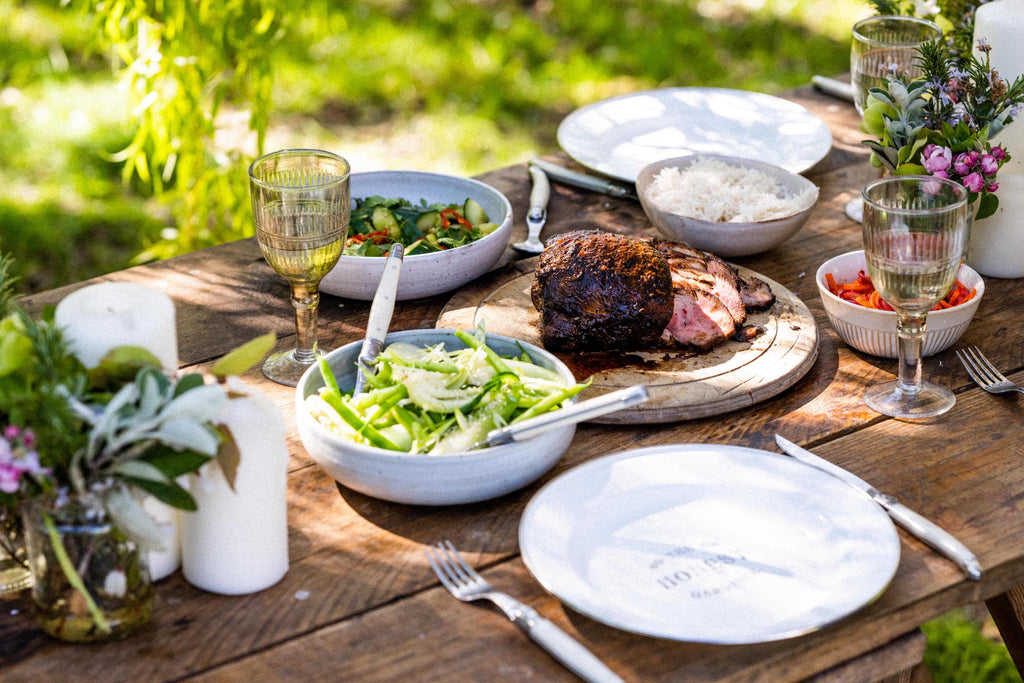One of our fundamental principles of farming the Pipers Farm way is to rear livestock slowly. By selecting the right breeds, with the right diet, we let animals grow at a natural pace. This is of paramount importance to the health and welfare of our stock and it also ensures an animal has developed a proper bone structure and texture in the meat – resulting in real eating quality.
We are also passionate about the Slow Food movement, a grassroots organisation that champions the alternative to fast food. The Slow Food motto is "Good, clean and fair" - a sentiment we couldn’t agree more with.
Who better to talk us through Slow Food and how it aligns so deeply with our mission here at Pipers Farm than Shane Holland, Executive Chair of Slow Food in the UK.
Relooking at Food & Farming
by Shane Holland (@slowfooduk)
Slow Food first and foremost is a set of values, of ideas about how food and farming could be. Behind that is an organisation, now more than thirty years old, which has spawned the word "Slow" in many other ways too - from fashion to travel, and even TV.
But what is at the heart of Slow Food (spoiler: it's not about casseroles - though they can be Slow!)? It’s about food which is Good, Clean and Fair. Food which is produced in harmony with the landscape, the community, and the cultural heritage of the place that it sits in.
Our landscape looks as it does because of traditional farming, the native breed cattle grazing the lush pastures for Pipers Farm and their network of small scale, family farms mean that the landscape looks as it does, just as the Herdwick sheep - the only Sheep which can withstand being battered by rain - maintains the Lake District.
Good food and farming can be the solution to climate change too. We often hear about eating less meat – beef in particular – but the hooves of ruminants on our pastures are sequestering carbon, and are a world apart from intensively produced feedlot animals which is seen in far too many other places.
By growing and choosing food for flavour, rather than withstanding transportation (I'm looking at you, rock hard strawberries and peaches), we also are increasing our biodiversity. The UK has more than 2500 varieties of native apple, but today 70% of all those we eat come from three varieties – Golden Delicious, Granny Smith and Braeburn – and we import 70% of that 70%.
Monocultures mean diseases spread, from chocolate to bananas, and unique varieties which may have stood up to climate change are lost forever. Slow Food works to counteract this with the Slow Food Ark of Taste, an “at risk register” of food, many of the breeds which Pipers Farm sells appear on that list, alongside unpasteurised cheeses, whey butter and all manner of items of our culinary heritage.
Does our culinary heritage even matter? Many here in the UK would shrug their shoulders, but is it not food and drink the first thing we speak about when come back from holiday? How good the food was? What we ate?
Food is culturally important, and this is at the heart of why we encourage people to sit around the table and eat – to share their day as well as their dishes. This small, simple, daily act is also linked to better mental health, and even better exam grades in children!
Slow Food also recognises that not everyone has the same access to food, so our community division teaches children to cook, runs community cooking sessions, teaches shopping on a budget, but most importantly has the message that we all deserve good food.
This matters.
Food is far more than just calories, or something to fill you up. It gives confidence, a warm feeling, it means at times a hug, at times it means love. It’s a solution to better health, and a better climate.
So choose wisely. We can change the world, one fork at a time.

Find out more about Slow Food UK by visiting www.slowfood.org.uk
.png?v=1712736297863&options=c_crop,w_360,h_360)

